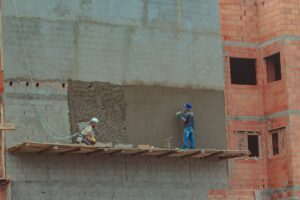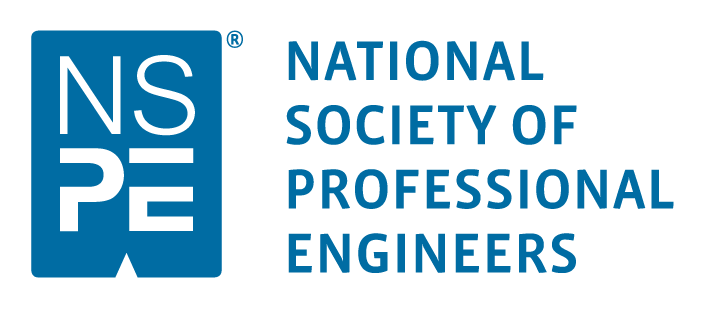Addressing the Dangers of Deferred Maintenance with Reserve Study
Managing a property, whether a residential, commercial, or industrial facility, involves maintenance. This regular upkeep is essential to keep the property safe, functional, and aesthetically pleasing.
Asset maintenance involves several duties and demands. It includes responding to repair requests from tenants, preserving the landscaping, fixing HVAC systems, handling pest management, and cleaning or painting common areas.
Building maintenance is essential so the structure can provide the services or functions they intend to deliver. But it is sometimes necessary to postpone maintenance and repair tasks, especially when resources are limited.
Often, owners and managers are faced with the difficult decision of putting off necessary maintenance to direct the funds to other critical expenses. These delayed action items are also known as deferred maintenance.
Understanding Deferred Maintenance
Deferred maintenance is the repairs to infrastructure and assets that are postponed or rescheduled. Suppose the homeowner’s association or HOA’s financial position and liquidity are insecure. Instances like this make initiating rehabilitation or capital improvement difficult. The boards and management sometimes delay planned repairs until the situation becomes more stable. They may put off siding, roofing, decking, or paving projects to get their financials back in check.
Other reasons why associations might defer maintenance are the following:
- Lack of Priority: Compared to other expenditure items, the association could be giving a lesser priority to the building upkeep. They might view its repercussions as tolerable or not as harmful as it actually is.
- Insufficient Asset Information: It is also possible that there is not enough information accessible to help managers persuade decision-makers to approve maintenance and repair budgets.
- Company Policy: The organization may follow a run-to-failure or lean maintenance policy. In these cases, reactive maintenance is carried out only when the asset malfunctions.
- Lack of Human Resources: Certain repairs may require internal personnel with specific knowledge or skills to accomplish building maintenance tasks. There might be insufficient personnel to complete the asset’s upkeep.
While deferred maintenance may seem like a minor concern, these tasks can prevent unscheduled downtimes, higher repair costs, and accidents. These upkeep jobs must be finished eventually to prevent safety hazards, malfunctions, or damage.
Long maintenance backlogs are a common issue among boards or HOAs. But it does not imply that they can be taken lightly. The facility director or property manager must manage the asset’s deferred maintenance needs to protect stakeholders from its potential long-term effects.
Dangers of Deferred Maintenance
Delayed maintenance can significantly affect asset performance, occupant safety, and the risk of unplanned breakdowns. The state of that asset or building component will continue to deteriorate the longer the facility maintenance activities are postponed. This can lead to many negative consequences, from high repair costs to safety hazards and decreased property value.
Unaddressed deferred maintenance can lead to unanticipated breakdowns in the short run. Long-term, this may reduce the asset’s useful life and necessitate its restoration earlier than anticipated.
Delaying building system maintenance may also result in unsafe building conditions. For example, not replacing the air filters in the HVAC system can lead to a decline in the air quality inside the building. This will put the health of the occupants at risk. Poor indoor air quality can lead to headaches, weariness, difficulty concentrating, and irritation of the eyes, nose, throat, and lungs.
Moreover, neglecting basic maintenance can lead to noncompliance and liabilities. Failing to preserve building systems could result in a costly lawsuit and reputational loss.
Deferred maintenance is unavoidable. Understanding the risk involved is essential when selecting what maintenance items to defer or which jobs on the maintenance backlog to perform. Boards and groups must therefore consult experts to determine which projects may be safely delayed and which require immediate attention.
Reserve Study to Manage Deferred Maintenance
Conducting a reserve study is one way to address unmanaged deferred maintenance. A reserve study examines the state of the capital reserve fund and the physical structure’s condition.
The reserve fund is money allocated for future expenses. This will be used to pay for significant capital renovations or the replacement of various system components. This provision is essential to protect individual homeowners from unforeseen financial pressures.
The reserve study also involves a physical assessment of the building. A commercial building engineer NJ will evaluate the condominium’s physical components. Based on that examination, they will create a financial strategy so there is enough money to replace elements like roofs, roads, siding, and lighting.
At the end of the reserve study, the building inspection engineer NJ will produce a report identifying anticipated major expenditures required for the property’s upkeep. The report will also specify when these maintenance projects must be done and how much money will be needed to cover them.
The reserve study helps HOAs get a clear picture of how the association’s maintenance requirements compare to its financial capabilities. The board and owners can use the report produced by the commercial building inspector NJ as a budgeting tool to create a reserve fund for maintenance, repairs, and replacements.
The reserve study helps property owners address and plan for managing deferred maintenance. It considers significant maintenance or replacement of common building components and analyzes the association’s reserves to see if they will meet those expenses adequately. If it is not, they can decide if they have to levy a special assessment, get a loan, or combine these financing alternatives.
Lockatong Engineering Reserve Study
Engineers at Lockatong Engineering can assist HOAs in New Jersey in setting up a reserve fund for their property.. By enlisting professional engineers, HOAs arrange funds well in advance for the future. They can spread their financial reserve evenly over time and avoid fueling their reserves with loans or special assessments.
Experienced professionals at Lockatong Engineering offer comprehensive inspection and concentrated evaluation of a single asset feature. Through a thorough commercial building inspection NJ, our experts can secure that the residential and commercial structures are safe and compliant from a structural standpoint.
Get in touch with our experienced New Jersey engineers and arrange a reserve study at https://www.lockatong.com/contact-us/.








